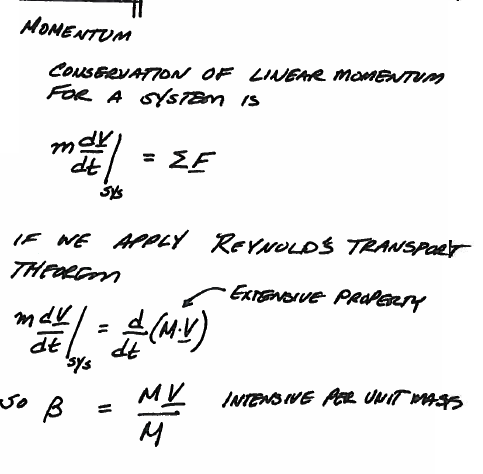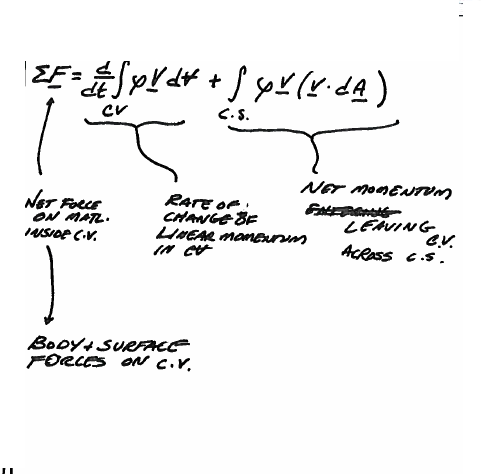Linear Momentum (pp. 281-283)¶
Fig. 102 relates the extensive property of linear momentum for a system to the intensive property of momentum per unit mass which is the velocity vector.

Fig. 102 Caption¶
Fig. 103 extends to the intensive property of momentum per unit volume which is the product of density and velocity vector \(\rho \bar V\)

Fig. 103 Caption¶
The result of application of the Reynolds Transport Theorem to the linear momentum term is an integral equation that relates the sum of external forces to the rate of change of linear momentum in the control volume plus the net momentum leaving across the control surface as depicted in Fig. 104

Fig. 104 Caption¶
Note
Application of momentum principles uses three primary principles:
Select an inertial (non-acelerating) reference frame
Indicate positive and negative coordinate directions
Draw the CV/CS and indicate
Forces
Velocities
Outward pointing area vectors
